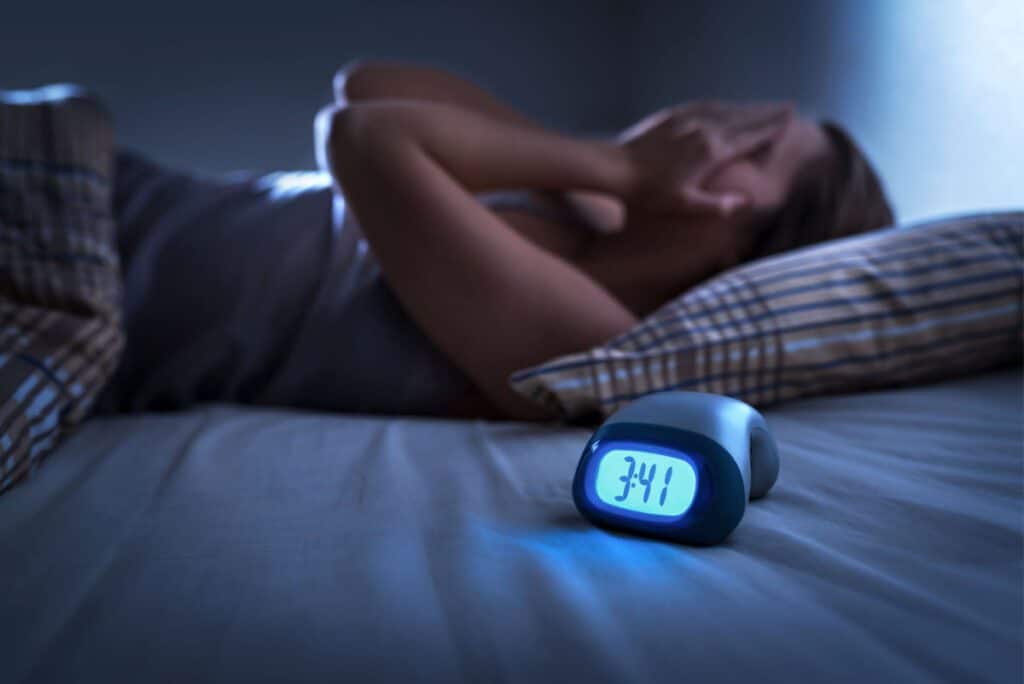One of the most important things to our daily lives and recovery from the previous day remains to get enough sleep. A restful eight hours can help the body recover, recharge, and be ready for the next day. However, various factors can negatively affect our ability to sleep soundly and not get enough for our ongoing needs. One of the most prevalent questions alcoholics and their loved ones may ask is a simple one — does alcohol give you insomnia?
What Is Insomnia?
Insomnia is clinically defined as problems either falling or staying asleep or waking up early and not being able to get back to sleep. The cumulative loss of sleep becomes serious enough that it affects our ability to perform daily tasks while occurring three nights a week over a three-month period. Insomnia remains the most common sleep disorder reported across the board. Persistent insomnia can increase the risk of developing depression, hypertension, and even heart attacks. Multiple factors can play a role in someone developing the condition; however, does disordered alcohol consumption increase the odds?

Could Small Doses of Alcohol Help With Insomnia?
Some people may believe that taking a nip of alcohol before bed may help them with their insomnia. Since it’s a sedative, a little bit could potentially help with falling asleep. However, humans can quickly build a tolerance to alcohol, making achieving the potential benefits more difficult. When those little sips here and there quickly lose effectiveness, people may resort to drinking more until they get to sleep.
What Happens When You Drink More Alcohol to Fall Asleep?
When you start drinking more and more alcohol to deal with your insomnia, you will not experience the same benefits. You can potentially exacerbate some issues that make it even more difficult to fall asleep. Studies have shown excessive alcohol consumption can disrupt sleep patterns, worsen snoring, and exacerbate obstructive sleep apnea.
Does Disorder Alcohol Consumption Cause Insomnia?
As more studies are conducted, the link between alcohol dependence and sleep disorders becomes hard to deny. Alcohol can inhibit the neurotransmitters that govern wakefulness and can disrupt the entire sleep-wake cycle. Within a few hours of falling asleep after a few drinks, you can wake up and have difficulty getting back to sleep. As people try to self-medicate their sleep issues with alcohol, and the need to drink more and more to achieve the same effects, they can begin to fall into a vicious cycle. As they try to use alcohol to fall asleep, they don’t get a continuous good night’s sleep and then have to use more stimulants such as coffee to stay awake. Additionally, alcohol can affect how much REM sleep we get throughout the night. Rapid eye movement sleep is associated with the most restful sleep we can get throughout the night. Some studies show that long-term alcohol use can reduce your overall sleep quality and potentially lead to sleep disorders such as insomnia.
Find an Alcohol Treatment Program in Mahanoy City, PA, to Help Today
When you have concurrent insomnia and alcohol use disorder, you need the
right treatment and rehab program to help treat your alcoholism. Silver
Pines Treatment Center employs an experienced staff that has worked with
countless patients in the area to figure out the underlying reasons behind
their alcohol use and develop a comprehensive treatment plan to help with
their recovery. If you or someone you love has tried using alcohol to treat
their insomnia and has developed an alcohol use disorder, don’t hesitate to
reach out. Our team has helped countless patients by providing a strong
support system and the resources they need to make positive changes in their
lives. Contact us at 267.209.7313 to learn
more about our admissions process today.



